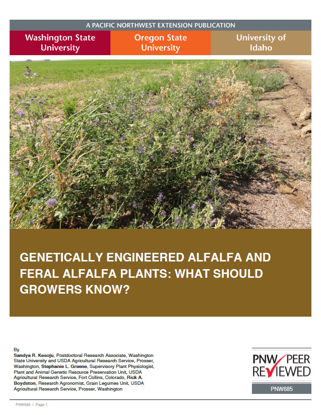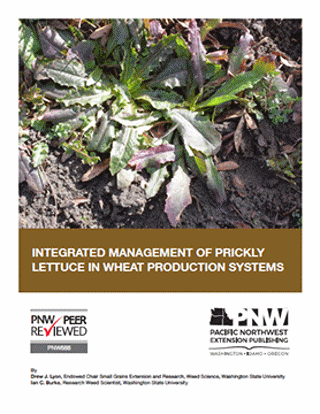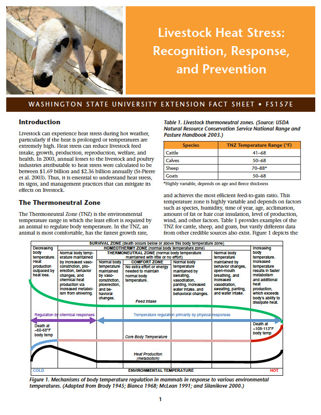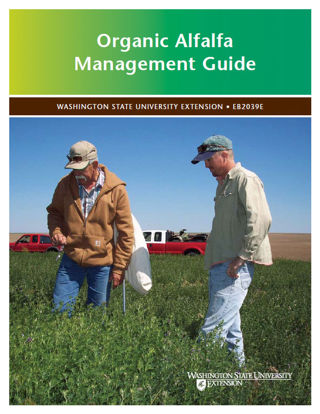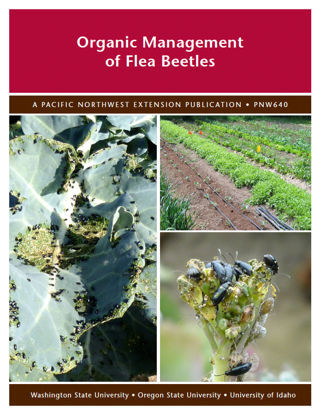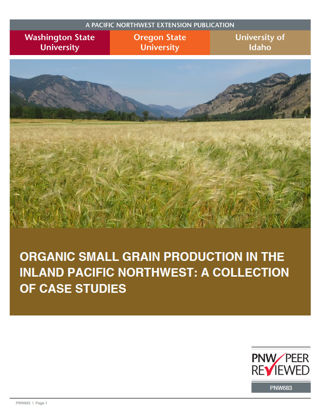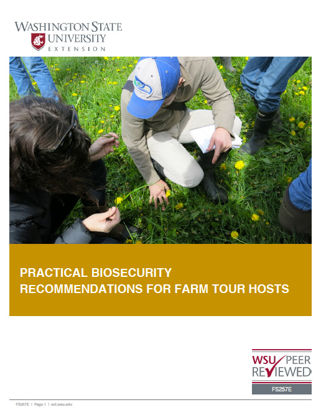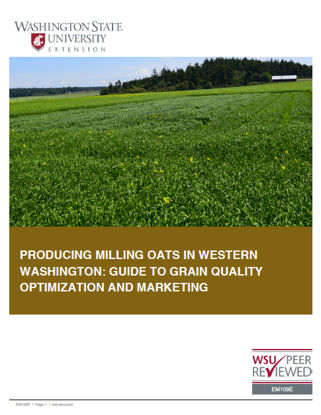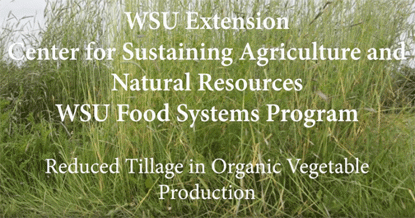You have no items in your shopping cart.
Organic Production
Organic Production
Genetically Engineered Alfalfa and Feral Alfalfa Plants: What Should Growers Know?
Alfalfa is the world’s most important forage crop, and the western US is its most important production area. Feral alfalfa is common and can potentially lower the genetic purity of alfalfa seed and cu ...
$0.00
Integrated Management of Prickly Lettuce in Wheat Production Systems
Prickly lettuce is a common weed in wheat production systems throughout the PNW, but it’s difficult to manage. Herbicides can control prickly lettuce in wheat, but many biotypes have developed resistance.
$0.00
Management Practices to Mitigate Livestock Heat Stress
Livestock can experience heat stress during hot weather, particularly if the heat is prolonged or temperatures are extremely high. Heat stress can reduce livestock feed intake, growth, production, rep ...
$0.00
Organic Alfalfa Management Guide
Looking to switch to organic alfalfa production? This management guide details the considerations and procedures for doing so. Organic alfalfa producers must follow rules established by USDA Nation ...
$0.00
Organic Management of Flea Beetles
Flea beetles are common garden pests found throughout the Pacific Northwest. Flea beetle feeding on plants in the Brassicaceae and Solanaceae families can scar foliage and potato tubers, leading to re ...
$0.00
Organic Small Grain Production in the Inland Pacific Northwest: A Collection of Case Studies
Organic farming can be a challenge anywhere, but the obstacles encountered by Inland Pacific Northwest organic small grain farmers are unique. Their options for managing weeds and soil nutrients are f ...
$0.00
Practical Biosecurity Recommendations for Farm Tour Hosts
This publication was written for livestock producers who would like to open their farms to the public for tours or educational workshops, yet reduce disease risks potentially associated with such visi ...
$0.00
Producing milling oats in western Washington: Guide to grain quality optimization and marketing
Oats represent an interesting opportunity for producers in western Washington both to diversify their rotations and strengthen local food systems. This publication introduces milling oat quality speci ...
$0.00
Reduced Tillage in Organic Vegetable Production
This video covers the concept of reduced tillage organic agriculture, cover crop and weed management, and specialized equi ...
$0.00

